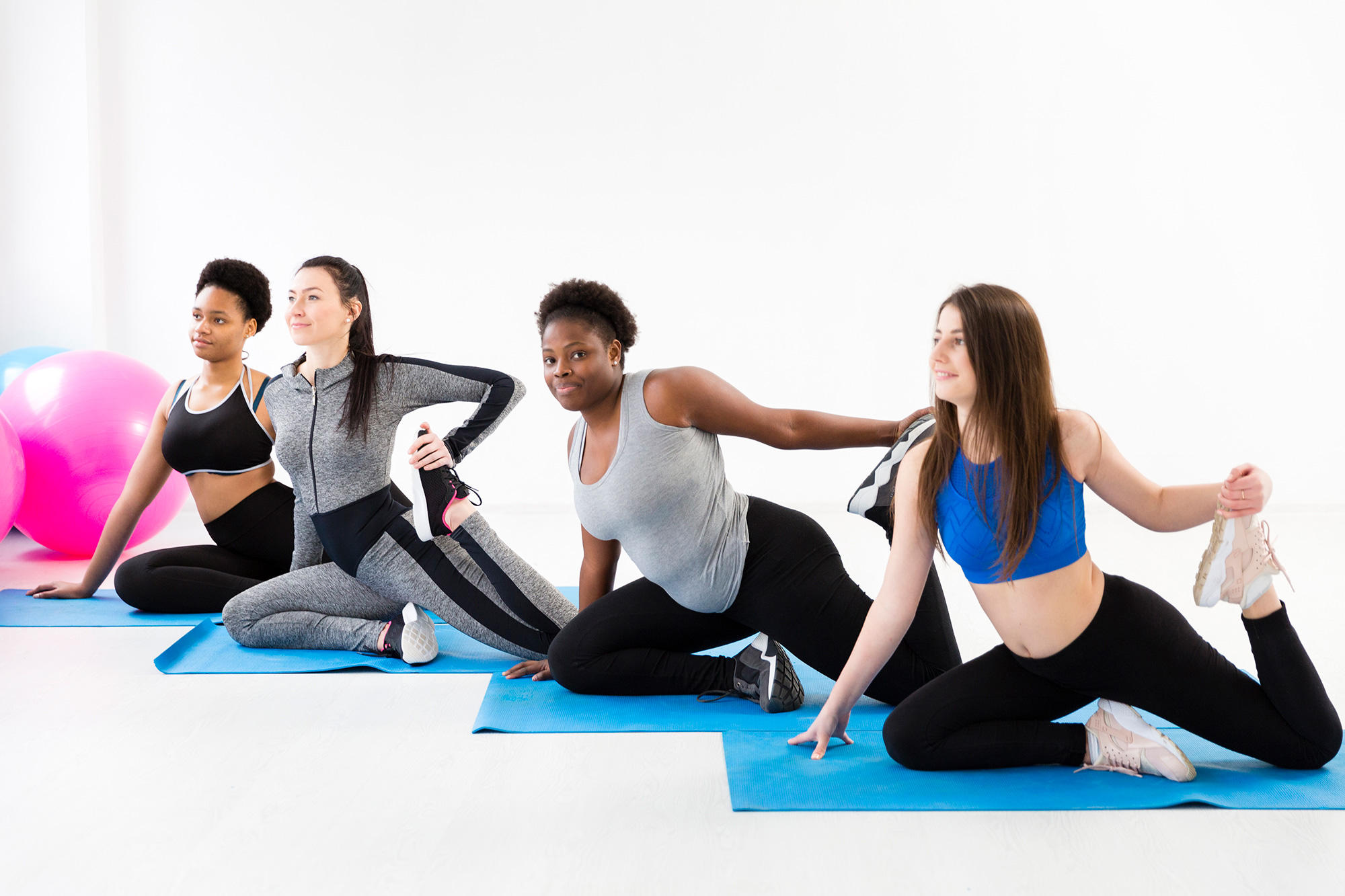
Achieving a balanced lifestyle is crucial for maintaining overall well-being. It involves a harmonious blend of physical health, mental clarity, emotional stability, and social connections. Here are a dozen habits across various areas that contribute towards a balanced lifestyle.
Table of Healthy Habits
| Habit Category | Habit Description |
| Food Habits | 1. Eat a Balanced Diet |
| 2. Stay Hydrated | |
| 3. Practice Mindful Eating | |
| Exercise Regimen | 4. Engage in Regular Physical Activity |
| 5. Incorporate Strength Training | |
| 6. Practice Flexibility Exercises | |
| Intellectual Pursuits | 7. Read Regularly |
| 8. Engage in Lifelong Learning | |
| 9. Practice Mindfulness and Meditation | |
| Entertainment | 10. Engage in Creative Activities |
| 11. Enjoy Nature | |
| People Interactions | 12. Foster Meaningful Relationships |

Food Habits
1. Eat a Balanced Diet: A balanced diet provides essential nutrients that the body needs to function effectively. Include a variety of fruits, vegetables, whole grains, lean proteins, and healthy fats in your meals. This helps in maintaining energy levels, improving mood, and reducing the risk of chronic diseases.
2. Stay Hydrated: Drinking adequate water is vital for overall health. It aids digestion, keeps skin healthy, and helps in regulating body temperature. Aim for at least 8 glasses of water a day, adjusting for activity level and climate.
3. Practice Mindful Eating: Mindful eating involves paying full attention to the experience of eating and drinking. It means savoring each bite, recognizing hunger and fullness cues, and appreciating the flavors and textures of food. This practice can prevent overeating and promote a healthier relationship with food.

Exercise Regimen
1. Engage in Regular Physical Activity: Regular exercise is crucial for maintaining physical health. It improves cardiovascular health, strengthens muscles, enhances flexibility, and boosts mental health. Aim for at least 150 minutes of moderate aerobic activity or 75 minutes of vigorous activity each week, along with muscle-strengthening activities on two or more days.
2. Incorporate Strength Training: Strength training helps in building muscle mass, boosting metabolism, and maintaining bone density. Include activities such as weight lifting, resistance band exercises, or body-weight exercises like push-ups and squats in your routine, at least twice a week.
2. Practice Flexibility Exercises: Flexibility exercises, such as stretching and yoga, improve the range of motion in the joints, reduce the risk of injuries, and promote relaxation. Dedicate time to stretch major muscle groups daily, especially after workouts, and consider integrating yoga or Pilates into your fitness regimen.

Intellectual Pursuits
1. Read Regularly: Reading stimulates the mind, enhances knowledge, and improves focus and concentration. Make a habit of reading books, articles, or journals daily. This can include fiction for relaxation and non-fiction for learning and personal growth.
2. Engage in Lifelong Learning: Lifelong learning keeps the mind sharp and engaged. Pursue new skills or hobbies, take online courses, or attend workshops and seminars. Continuous learning helps in staying current with new information, which is beneficial both personally and professionally.
3. Practice Mindfulness and Meditation: Mindfulness and meditation reduce stress, enhance emotional health, and improve attention and concentration. Spend at least 10-15 minutes daily in mindfulness practice or meditation. This can involve deep breathing exercises, guided meditation, or simply sitting quietly and observing your thoughts.

Entertainment
1. Engage in Creative Activities: Creativity can enhance mood, reduce stress, and improve cognitive function. Engage in activities like painting, drawing, writing, playing a musical instrument, or crafting. These activities can provide a sense of accomplishment and are a great way to unwind.
2. Enjoy Nature: Spending time in nature has numerous health benefits, including reduced stress, improved mood, and increased physical activity. Make time to visit parks, go for hikes, or simply take a walk in a natural setting. Nature exposure can provide a refreshing break from daily routines and digital screens.

People Interactions
Foster Meaningful Relationships: Strong social connections are vital for emotional well-being. Nurture relationships with family, friends, and colleagues. Engage in regular social activities, communicate openly, and provide support to others. Building a strong support network can offer emotional security and reduce feelings of loneliness.

Integrating Healthy Habits into Daily Life
Prioritize and Schedule
- Plan Your Meals: Create a weekly meal plan to ensure a balanced diet and avoid last-minute unhealthy choices.
- Exercise Routine: Schedule workouts into your daily calendar, treating them as non-negotiable appointments.
- Reading and Learning Time: Dedicate specific times of the day for reading and educational pursuits, such as during your morning commute or before bed.
- Mindfulness Practices: Integrate short mindfulness sessions into your daily routine, such as meditating first thing in the morning or practicing deep breathing during breaks.
- Creative and Nature Activities: Allocate time during weekends or evenings for creative hobbies and nature outings.
Combine Habits for Efficiency
- Active Commutes: Walk or bike to work to incorporate physical activity into your daily routine.
- Mindful Meals: Use mealtime as an opportunity to practice mindfulness, focusing on the flavors and textures of your food.
- Learning While Exercising: Listen to audiobooks or educational podcasts while working out or commuting.
- Social Fitness: Join group fitness classes or sports teams to combine physical activity with social interaction.
Set Realistic Goals
- Start Small: Begin with small, achievable goals, such as adding one fruit or vegetable to your diet each day or meditating for five minutes daily.
- Gradual Progression: Gradually increase the intensity and duration of your exercise routine or the complexity of your intellectual pursuits.
- Track Progress: Keep a journal or use apps to track your habits and progress. Celebrate milestones to stay motivated.
Seek Support and Accountability
- Find a Buddy: Partner with friends or family members who share similar goals. This can provide mutual encouragement and accountability.
- Professional Guidance: Consider seeking advice from nutritionists, fitness trainers, or mental health professionals to tailor habits to your specific needs.
- Online Communities: Join online groups or forums related to your interests and goals for additional support and motivation.
Be Flexible and Adaptable
- Adjust as Needed: Life is dynamic, and it’s essential to adapt your habits to changing circumstances. Be flexible and open to modifying your routines as needed.
- Practice Self-Compassion: Understand that setbacks are a natural part of the process. Treat yourself with kindness and patience, and focus on getting back on track.

Conclusion
Adopting healthy habits for a balanced lifestyle is a continuous journey that requires commitment, effort, and flexibility. By incorporating a variety of practices related to nutrition, exercise, intellectual pursuits, entertainment, and social interactions, you can create a harmonious and fulfilling life. Remember to start small, stay consistent, and enjoy the process of becoming a healthier, more balanced individual.

0 Comments